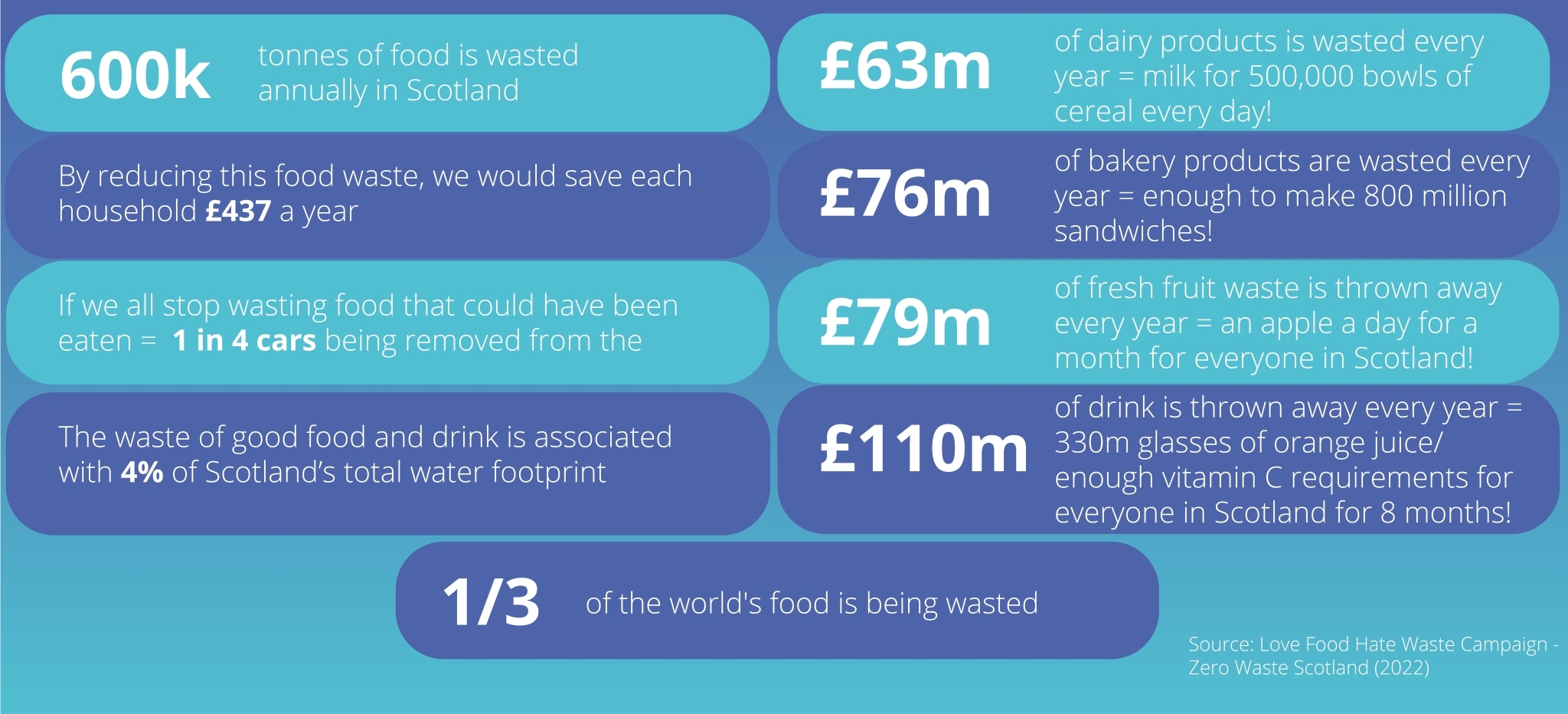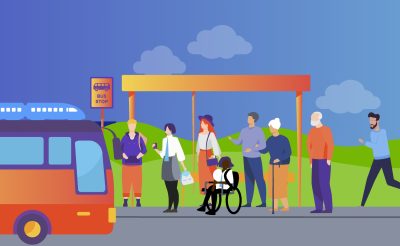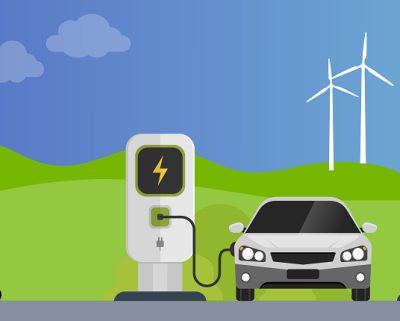COST OF LIVING SUPPORT
Households can help the environment whilst saving energy and money! Find out more below on home energy guidance and financial support, how to make your home more energy efficient, how to reduce travel costs, sustainable shopping options, and savings to be made with food and cooking.
Sign up to our monthly newsletter to keep up to date with the latest climate action in Perth and Kinross, funding opportunities, cost-of-living support, events and more!
HOME ENERGY

Help with Energy Bills
With the cost of heating and powering our homes becoming more expensive, paying for energy bills can often be a worry for many people. Our website provides information on ways you can reduce your fuel bills while still staying warm. When looking at ways to reduce your bills and make every penny spent on energy in your home go as far as possible, there are many things to consider, and it can be quite daunting knowing where to start. This Reduce Energy Costs Guidance provides an overview of support within Perth and Kinross and lists available grants and discount schemes to make your home more energy efficient. Listed below are some of the key advice contacts to help with energy.

Home Energy Advice Team (SCARF) delivers free impartial in-home and telephone advice on saving energy and keeping warm at home, accessing funding support including Scottish Government grants and interest free loans, installing renewable energy at home and greener travel. For more information call on 0808 129 0888 or email [email protected]
The HEAT Project is a Perth and Kinross community-based project which provides free professional energy advice and home visits focused on saving you money and reducing energy use, accessing financial support and installing renewable solutions including heat pumps and solar panels.
The Warm Connections Project provides free support on home energy and green living in the Aberfeldy area and Highland Perthshire.
Home Energy Scotland provides free, impartial advice to help you with rising bills
The Perth Citizens Advice Bureau (CAB) provides free advice, information and guidance including advice on energy efficiency and energy debt.
Over 2021- 2022, the Perth CAB energy advice service saved 275 people and an average of £5,300. Phone 0808 196 9440 or email [email protected].
Warm Spaces across Perth and Kinross have been identified and displayed on an interactive map. If you would like to stay connected and active over the winter period, you can make use of one of the many Warm Spaces being offered across Perth and Kinross.
- A heated facility or venue which offers a warm welcome to members of the public at no cost
- The warm space may also offer a social or other form of activity, and
- The warm space may also offer refreshments or food
Energy Efficient Homes
There are ways to improve your home energy efficiency and stay warm. Before considering the installation of renewable energy systems, it is important to maximise heat conservation in your home. This is best achieved through insulation, air tightness, and optimised design to capture as much of the sun as possible. This will help improve energy efficiency and reduce ongoing maintenance costs.
How to Make Your Home More Energy Efficient - https://www.pkclimateaction.co.uk/energy-efficient-homes
Household Renewables
Households might be considering renewables for the home to reduce their reliance on fossil fuels and the associated costs. The thought of transitioning to renewables might be a daunting step, however there are a variety of support networks to help make the move to green energy easier. Energy Saving Trust provide a list of grants, loans and financial schemes to help fund household renewables.
We have also provided guidance on Heat Pumps and Solar Panels.
Save Water and Money
This article on saving water provides information on how households can reduce the amount of water used and save money. Around one fifth of the average household’s heating bills are spent on heating water, so saving water not only helps protect the planet, it can also help keep your energy bills down (Scottish Water 2022).
1. Don’t leave appliances on standby as these continue to use energy.
By switching off appliances you can save up to £65 a year. Did you know typically microwaves will use more energy showing the time than it will being used to heat food. Therefore switching off at the plug can help save money.
2. Turning your thermostat down by one degree can save you up to £80/year and you may not even feel a difference.
Think about only heating rooms you regularly use (recommended room temperature is not below 18°C).
3. When washing, try to fully load your washing machine and wash at 30°C.
By using your washing machine more carefully you can save up to £28/year on your energy bill while still cleaning your clothes effectively.
4. Draught-proof your home - homes can lose heat through gaps around windows and doors, floorboards, etc.
These areas can be sealed off to save energy and reduce costs. Most DIY stores will stock draught-proofing products which are inexpensive and easy to install. This could save you between £20 to £30 a year.
5. Fill the kettle with correct amount of water needed
One of the biggest wastes of energy is boiling water which isn't required, by boiling exactly what we need can help reduce the amount of unused water.
6. Switch off lights in an unoccupied room
Turn your lights off when you’re not using them or when you or others leave a room. This action can provide a household saving of £25 a year.
7. Shower instead of Bath
We all love a bath now and again, but try to have more showers as this is a huge saving due to the volume of water heated is much less for a shower. Aim for showers no longer than 4 minutes to achieve an annual saving of £70.
8. Fit a heating programmer and sensor
Reducing your household heat by a degree could save around £100 a year.
9. Heat the person not the place
Thermal comfort is the hardest thing to accommodate for. Everyone has a completely different comfort level as it takes in so many variables.... so, before you turn up that stat or put on the heating. Go into the wardrobe and get the fluffy socks out and the hoodie. Heated blankets and vests are also a great alternative to keep you warm whilst not using a lot of energy.
10. Install LED lights
The Energy Saving Trust provide advice on lighting in homes. If you replace all the bulbs in your home with LED lights, you could reduce your carbon dioxide emissions by up to 40kg a year. This is equivalent to the carbon dioxide emitted by driving your car around 145 miles. Lighting makes up 11% of the average UK household electricity consumption, so making the switch could help you save money too (Energy Saving Trust 2022).
11. Drying Clothes
Use the beautiful Scottish weather to dry clothes rather than the tumble-dryer. Will have to think tactically to avoid the rain showers, but the wind and occasional sun will dry clothes in no time. For those rainy days a indoor clothes horse can come in handy. By not using the tumble dryer it is possible to save up to £60 a year.
Food and Cooking

The production, processing, transport, consumption, and disposal of food all contribute to greenhouse-gas emissions. To reduce your impact on the climate, buy local and seasonal food, eat more plant-based meals, use up what you have, and compost any leftovers. Shopping locally can often be a cheaper alternative, which supports small businesses. The list below provides some tips to consider to reduce food and cooking costs:
- Zero Waste Scotland have launched the Love Food Hate Waste (LFHW) campaign. LFHW provides guidance on how to save money by carrying out a variety of methods, including planning out weekly meals and food shops, bulk cooking, cooking options and cheaper recipes.
- Make a list before you go food shopping to help avoid overbuying. This could save you up to £50/week and cut down on food waste.
- Look up recipes online and cook with ingredients you have left over. Cooking at home can save you more than £5/meal.
- Aim to have more vegetarian or vegan meals, by swapping out the meat for veggie alternatives you can save a significant amount of money. This will reduce costs, provide a healthy meal and is a lower carbon option. Often going straight to the grower can reduce the cost further for fruit and vegetables. Local farmers do supply fruit and vegetables boxes, which can be delivered or picked up on a weekly or monthly basis.
- Think about growing your own fruit, vegetables and herbs. The process of growing allows you to be more self-sufficient and it is a healthy way to save money and learn a new skill. There are also many community groups and individuals who swap seeds and surplus crops to ensure food does not go to waste. These community groups can also provide support, especially for beginners looking to find out what crops will work well to reduce overall costs. Please see the Growing Together map to view groups and suppliers within Perth and Kinross. The map also highlights community orchards which are accessible to all!
- Perth and Kinross has a variety of food projects which are accessible to everyone! These include food redistribution projects, food fridges and community larders/boxes. These projects are for everyone and it allows people to help tackle the issue of food waste. You can pick up free or low cost food at these projects and you can drop off anything which you do not plan to use in your own cupboards and fridge. This interactive map and spreadsheet (filter by food category on 'Project' tab) displays these projects. Why not try food share apps such as Too Good to Go which aim to tackle the food waste issue. The Too Good To Go app lets customers buy and collect Magic Bags of fresh food at a great price directly from businesses.

Waste Less Save More
For tips on how to reduce your food waste, browse the ‘Waste Less, Save More’ recipe book and find inspiration to use your scraps.

Once it is time to cook your sustainably sourced ingredients, the way you cook them can also cut down on the bills. Cooking consumes a lot of energy, but the following tips can reduce costs.
- According to uSwitch, the microwave is the most energy-efficient cooking appliance and it can be used to cook a variety of foods.
- Pressure cookers can use up to 70% less energy, reducing fuel bills and carbon emissions.
- Slow cookers simmer food over a longer period of time at lower temperatures. These are one of the most energy efficient appliances in the kitchen.
- Cut down on fuel bills by utilising available cookware such as the Wonderbag. This has been a sustainable cooking method globally, which provides communities with more resilience during electrical blackouts caused by climate change. Wonderbags can be used in any home. The way it works is by acting as a non-electric slow cooker that uses heat-retention technology to continue cooking food once your pan has been removed from the heat (source Wonderbag)
- Some air fryer models provide a cheaper option to cooking. Air fryers are typically more energy efficient than a conventional electric oven as the space heated is smaller and food can be cooked faster.
Travel

As fuel costs continue to rise, why not make use of active travel networks by either walking, biking or rolling for most of your journeys. Where this is not possible, take advantage of public transport or car clubs. We have provided the following guidance to help you plan your journey and save money when travelling.
Public Transport Guidance

Our public transport guidance provides details on the following:
- Journey planner
- Free bus travel
- Smart travel scheme
- PK on the Go is a dedicated active travel and sustainable transport site helping residents and visitors to Perth and Kinross to save money, time and hassle while they travel. The programme aims to enhance the region’s urban environments, by reducing traffic congestion and therefore pollution. PK on the GO provides information on the MI Rewards loyalty scheme which gives bus passengers the chance to win a prize that showcases the very best of your local area.
Active Travel Guidance

Our active travel guidance provides details on the following:
- PK on the Go
- The benefit of walking, cycling and wheeling
- Active Travel routes
- Walking groups
- Options when upgrading your bike
Electric Vehicles

Electric Vehicles (EV) are a more environmentally friendly option than petrol and diesel engine cars. Our Electric Vehicle Guidance provides details on the lower operational costs, charging networks and funding to help with buying a car.
Liftshare

If you have regular weekly car journeys, consider sharing a lift with others. The average liftshare user saved nearly £1000 per year.
1. If possible, allocate a no car day per week and challenge yourself to walk, cycle or use public transport to and from work.
Spending time outdoors allows us to de-stress, relax and unwind, feel energised and our physical health is improved. Therefore, by reducing our transport emissions through choosing to walk, wheel or cycle, it’ll have a positive impact on our health and wellbeing. The benefits of public transport include being able to save money as owning and operating a car is more expensive, you do not need to worry about a parking space, it reduces congestion in towns and the city, improves community mobility and health. Why not invest in some panniers as this will allow you to go for the weekly shop on your bike.
2. Walk or cycle for distances that are up to 30 minutes’ walk away from your house, instead of using your car.
Avoiding the use of your car for trips 1-5 miles, you could save around £100/year.
3. If using public transport more often is not possible, then economical driving habits can also make a difference.
Smarter driving can reduce fuel usage by 15%, eg driving at 60mph instead of 70mph saves you 8% of fuel and slowing down to 50mph can save you 15%.
4. For cleaner air, stop idling your car!
It's estimated that idling for just 10 seconds wastes more fuel.
Sustainable Shopping

Changing our shopping habits can help towards combating the impacts of the cost-of-living crises. People will be more aware of value for money and cost of products as prices rise.
Clothing and other textiles waste by weight makes up 4% overall waste but accounts for 32% of Scotland’s waste carbon impact.
There is a variety of shops and projects in Perth and Kinross where people can reuse, repair and share clothes. Good quality clothing, including designer makes can be found in these shops. Also, if you find the perfect outfit but it it not quite the right fit, it is often cheaper to purchase and head to a local tailor rather than buying new. The video below highlights some of the sustainable shops available in Perth City - head over to the interactive map which displays zero waste and sustainable shops throughout the Perth and Kinross area.
Help your clothes last longer with these hints and tips by Love Your Clothes.
By donating textiles to charity shops you are allowing for these items to be reused. You may also find your next outfit! This guidance provides a list of places where you can donate.
Enter you postcode on the find my nearest tool to locate your local recycling points.
1. Simplify your beauty routine to limit the amount of products used.
2. Go package free - shampoo, body and hair conditioning bars can each last up to 2 months and help you save a significant amount of money.
3. Invest in reusable items such as cotton pads and face cloths.
4. Try making your own homemade treatments, as it is a good way to reduce costs, reduce the amount of packaging you use, and you can perfect safe and environmentally friendly recipes to meet your own requirements.
5. Consider brands which provide a refill option such as mouthwash and deodorants. Refills cut costs as you do not need to buy another container each time you run out of your favourite products.
6. Use every product down to the last drop. There are times where we discover we do not like the beauty products which we have bought. However, there can be a plan B, for instance if you don’t like that moisturiser why not use it as a a foot cream. A conditioner can also act as an effective shaving cream. Shampoo, shower gel and liquid soap are often interchangeable, especially when opting for more gentle organic and sustainable products. So before buying more, think of how these products can be used before rinsing out and recycling.
7. Once you’ve reduced your consumption by using up everything, reused the products you can repurpose, and end up with empty containers, it’s time to recycle. Check your local recycling for details. Many beauty brands have partnered with TerraCycle which is a service provider who aim to "recycle the unrecyclable".
8. More and more brands provide in store recycling, where you receive discounts by bringing in your used packaging.
Struggling with the cost of living? Help may be available - Perth & Kinross Council (pkc.gov.uk)
FUNDING
Perth and Kinross Council - Cost of living funding
ENERGY
How to Make Your Home More Energy Efficient
FOOD
My Emissions allows you to calculate, reduce and carbon label your food.
BBC Good Food Seasonal Calendar- See what's in season year-round, and plan your shopping to suit.
RSPB provide information on sustainable and nature friendly farming in the UK
Human Rights Bill and the Right to Food
SHOPPING
Good on You provide brand ratings, articles and expertise on ethical and sustainable fashion. They also provide tips on how to care for fashion to make it last longer...saving you money in the long run!
The Good Shopping Guide reports on a range of product and provides an overview of ethical credentials related to the environment, animal welfare and human rights. Products on the website include beauty, fashion and tech.
Love your Clothes Campaign provides guidance when buying new clothes, caring and repairing clothes, refashion and upcycle tips, how to find a good home for unwanted garments.

